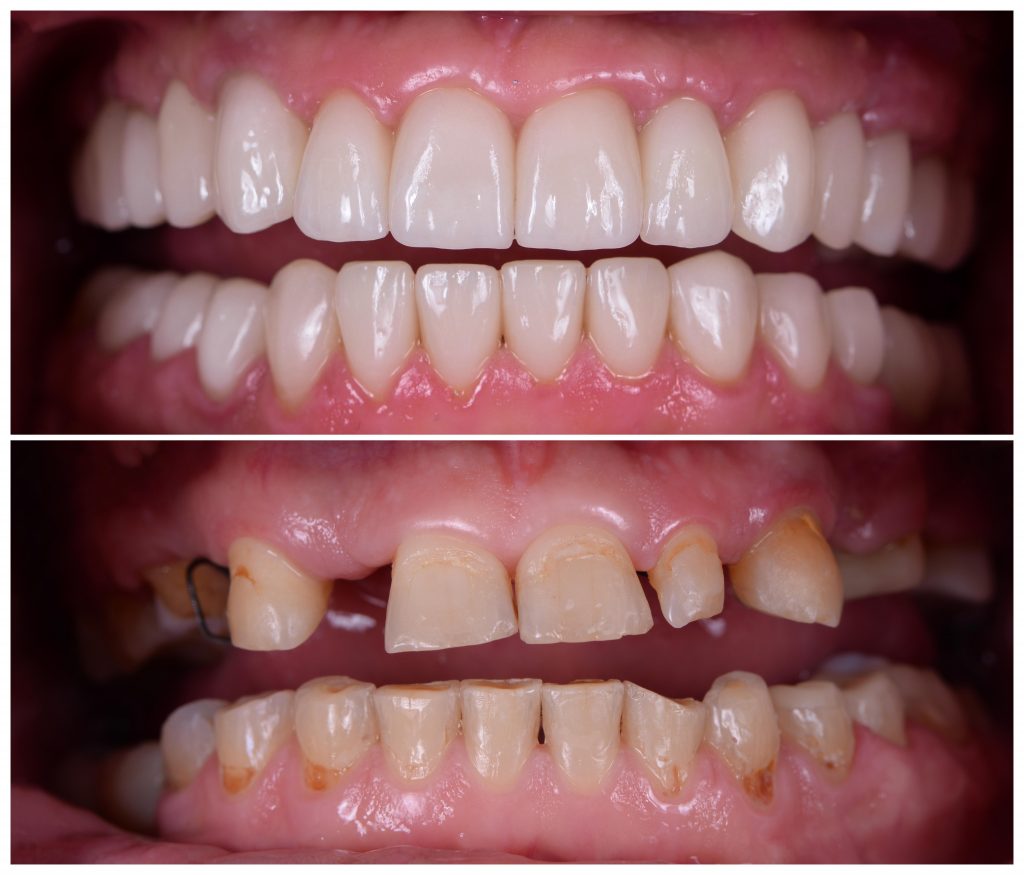Gentle Care Dentistry & Implants
General Dentist & Dental Implant Provider located in Sierra Vista, AZ
General Dentist & Dental Implant Provider located in Sierra Vista, AZ
One of the most convenient benefits of dental implants is that they don’t require any special maintenance beyond the usual care following the dental implant procedure. As a tooth replacement that looks, acts, and feels just like natural teeth, patients can achieve a lifetime of oral health success with comprehensive care and maintenance after the procedure.
To ensure that your restoration lasts and to help increase its longevity, our Sierra Vista, AZ, dentist has created a comprehensive guide to caring for dental implants. If you have any questions, contact our dental team at Gentle Care Dentistry and Implants today by calling (520) 458-9460.
Good oral hygiene is essential for maintaining the health and longevity of your dental implants. Oral hygiene habits to follow include brushing your teeth twice a day, flossing daily, and using an antiseptic mouthwash to kill bacteria and freshen your breath.
 Brushing Your Teeth
Brushing Your TeethOne of the most effective ways to maintain dental implants is by brushing your teeth twice a day. When brushing your teeth, use a soft-bristled toothbrush and toothpaste specifically formulated for implants. Make sure to brush all surfaces of your teeth, including the tops, sides, chewing surfaces, and gum lines.
Flossing is crucial for removing plaque and food particles from between your teeth and around your dental implants. Use a floss threader or special dental floss designed for dental implants to make flossing around the implant post easier. Additionally, utilizing implant-specific floss can significantly enhance the removal of plaque around the implant site, which is essential for maintaining optimal oral health.
One of the best methods for flossing is known as a Waterpik. It can reach difficult spots and keep the gum line clean.
Rinsing your mouth between meals is an essential step in maintaining the health of your dental implants. It helps remove food particles and bacteria that may be left behind after eating, which can lead to plaque and tartar buildup around the implant post.
Use an antiseptic mouthwash specifically formulated for dental implants. Swish the mouthwash around your mouth for 30 seconds to a minute, making sure to reach all areas of your mouth, including the implant site. Spit the mouthwash out and rinse your mouth with water.
Regular dental checkups and cleanings are essential for maintaining excellent oral health and keeping your dental implants in pristine condition. Our dentist will examine your implants to check for any signs of wear or damage and clean and polish them to remove plaque and tartar buildup.
Implant maintenance problems can occur despite regular care and maintenance. Here are some common problems and how to address them:
Following post-operative instructions is crucial for a smooth dental implant recovery, as it can help manage potential complications, such as excessive bleeding. Addressing excessive bleeding promptly, for example, by applying pressure with gauze or a moistened tea bag, is important to prevent dislodging the blood clot. The healing process plays a significant role in the success of a dental implant procedure, and practices like maintaining good oral hygiene can significantly impact recovery and prevent issues such as inflammation and weakened gums.
It’s important to seek prompt treatment for any implant maintenance problems to prevent further damage and ensure the longevity of your implant. Regular dental check-ups and follow-up appointments can also help our Sierra Vista dentist catch potential problems early.
If you’re dealing with any problems with your dental implant, contact our dentist in Sierra Vista by calling (520) 458-9460.
After receiving your dental implants, you’ll want to continue to visit your dentist once every six months. By maintaining regular dental visits, you’ll ensure your dental implants stay in excellent shape along with your surrounding natural teeth.
Most dentists recommend using a toothbrush and toothpaste specifically formulated for dental implants, as they’re designed to clean and protect the implant post and surrounding tissue without causing damage. Your dentist will recommend the best toothbrush and toothpaste for your specific case.
Since the base of your dental implant is fused with your jawbone, food won’t get trapped under the restoration. Unlike other tooth replacements, dental implants look, feel, and function the most like natural teeth.
Yes, plaque can grow on implants just like it can on natural teeth. Plaque is a sticky film of bacteria that forms on teeth and gums, and if not removed through proper oral hygiene practices, can lead to gum disease and other oral health issues.
Similarly, plaque can accumulate on the surface of dental implants, leading to inflammation and potential implant failure. This condition is known as peri-implantitis and can cause bone loss around the implant.
It’s generally recommended to use toothpaste that’s low in abrasive particles, as these can scratch the surface of the implant or the restoration attached to it. Look for toothpaste that has a low RDA (Relative Dentin Abrasivity) value, ideally under 70.
Some toothpaste brands also offer specialized formulations for people with dental implants, which may include ingredients such as antibacterial agents to prevent plaque buildup or enzymes to break down bacteria.
With proper care, dental implants are a life-long solution to missing teeth. If you have any questions about dental implant care, contact our Sierra Vista, AZ, dentist or dental hygienist today by calling (520) 458-9460. We’re more than happy to answer any questions you may have!
